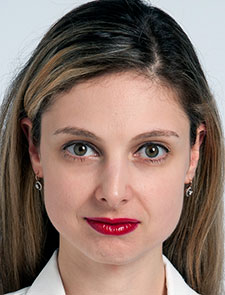
Dr. Arobelidze
Clinical question: In patients with recurrent Clostridioides difficile infection (rCDI), is the use of oral microbiome therapy associated with reduced risk of recurrence of the infection?
Background: The treatment for rCDI remains suboptimal because current therapies do not address fundamental aspects of the two-phase life cycle of this pathogen. Vancomycin and fidaxomicin lead to symptom relief by killing toxin-producing C. difficile bacteria that cause colonic inflammation and diarrhea, but do not kill C. difficile spores, which can rapidly germinate into toxin-producing vegetative bacteria after discontinuation of treatment. Antibiotics are necessary but not sufficient to achieve sustained clinical response. SER-109, an investigational oral microbiome therapeutic composed of live purified Firmicutes bacterial spores, was developed to reduce the risk of rCDI, by limiting the C. difficile spore germination in patients with three or more episodes of C. difficile infection within 12 months.
Study design: SER-109 versus placebo in the treatment of adults with recurrent Clostridium difficile infection (ECOSPOR III) was a phase 3, randomized, double-blind, multicenter, placebo-controlled trial
Setting: Fifty-six investigator sites in U.S. and Canada from July 2017 to September 2020
Synopsis: The study enrolled 182 patients with 89 patients assigned to receive SER-109 and 93 assigned to receive a placebo. The mean age of the patients was 65.5 years and 93% were white. Inclusion criteria included having an acute episode, defined as three or more unformed bowel movements for two consecutive days, a positive C. difficile toxin test, and resolution of the symptoms while receiving 10 to 21 days of antibiotic therapy. SER-109 and placebo were administered as four matching oral capsules once daily for three consecutive days. The primary efficacy objective was met: SER-109 was found to be superior to the placebo in reducing the risk of rCDI with a recurrence of 12% in the SER-109 group compared to 40% in the placebo group (RR, 0.32; CI 95%, 0.18 to 0.58; P <0.001). The benefit was seen in patients older or younger than 65 years of age and in those treated with vancomycin or fidaxomicin. SER-109 had a similar safety profile as the placebo; most symptoms were gastrointestinal and mild to moderate severity. The study limitations included the underrepresentation of minority populations.
Bottom line: Oral administration of SER-109 was superior to placebo in reducing the risk of rCDI using a two-pronged treatment approach: antibiotics to kill toxin-producing bacteria, followed by microbiome therapeutic to inhibit C. difficile spore germination and bacterial replication through microbiome repair.
Citation: Feuerstadt P, et al. SER-109, an oral microbiome therapy for recurrent Clostridioides difficile infection. N Engl J Med. 2022;386(3):220-9.
Dr. Arobelidze is an associate staff physician at the Cleveland Clinic, Cleveland, and a clinical assistant professor of medicine at the Cleveland Clinic Lerner College of Medicine of Case Western Reserve University of Medicine.